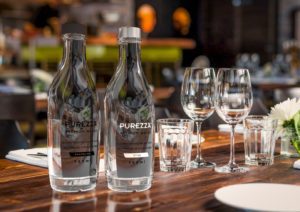Is drinking tap water safe?
Tap water is safe in all developed countries. Well, that’s what we at MyHSN think.
But, the big BUT. There is little (nearly no) good research to back that statement up, and answer this question.
So, what do we know about bottled and tap water?
42% of Brits now regularly drink bottled water; compared to 61% of Americans, and 75% of Italians. And few questions confound health-conscious people more than when a waiter asks at a nice restaurant: “bottled or tap?”

Here is some discussion from the USA, about the question ‘is bottled water better for you than tap water?’
We know which is (probably) better for the environment. Not only are millions of tons of plastic bottles clogging our landfills, but it takes 1.6 litres of water to make every litre of Dasani (a popular brand in the USA) – and the company is doing it in drought-plagued California.
But despite those harsh realities, public concerns about tap-water quality (and, let’s face it, slick marketing) have caused bottled water sales to soar over the past couple of decades.
Some of those concerns are merited: NRDC reports have shown that millions of people in the United States get their water from systems detecting lead.
And other health-harming contaminants, such as PFAS, atrazine, and nitrates, have also been found to be common in drinking water supplies across parts of the country.
Nevertheless, just because a bottled water company produces ads and labels that connote purity, with images of pristine glaciers and crystal-clear mountain springs, doesn’t mean that’s what consumers are getting.
How is water regulated in the USA?
It’s regulated by different agencies, with different missions. The U.S. Environmental Protection Agency (EPA) oversees the quality of water that comes out of your tap; whilst the U.S. Food and Drug Administration (FDA) is responsible for ensuring the safety and truthful labeling of bottled water sold nationally.
States are responsible for regulating water that is both packaged and sold within its borders (which is most of the market), but one in five US states don’t bother.
It’s important to note that the US government does not require bottled water to be safer than tap. In fact, just the opposite is true in many cases. Tap water in most big cities must be disinfected, filtered to remove pathogens, and tested for cryptosporidium and giardia viruses. Bottled water does not have to be.
Both kinds of water are tested regularly for bacteria and most synthetic organic chemicals, but city tap water is typically assessed much more frequently. For example, bottlers must test for coliform bacteria just once a week; city tap needs to be tested 100 or more times a month.
OK OK. But is tap water safe, and/or safer than tap water?
In 1999, after a four-year review of the bottled-water industry and its safety standards (and the concerns above), NRDC concluded that there is no evidence that bottled is cleaner or safer than tap water. So, yes, tap water is safe.
In fact, an estimated 25% or more of bottled water is just tap water in a bottle – sometimes further treated, sometimes not.
Of the 1,000 bottles tested, the majority proved to be relatively clean and pure. About 22 percent of the bottled water brands tested contained chemicals at levels above state health limits in at least one sample. If consumed over a long period of time, some of those contaminants could cause cancer or other health problems for people with weakened immune systems.
Summary
We have discussed is tap water safe (yes). And whether bottled water better for you than tap water (no). There is little good data to answer this question. Until there is, MyHSN will advocate tap water in the UK, for everyone (CKD or not).
Other resources
42% of Brits drink bottled water
This is a recent BBC programme on the subject.
The above article was partly derived from the NDRC website. This is a US pro-environment organisation.

